My home network runs UniFi equipment, and I demand 10GB POE capable ports at every port in the home. Because I can. That’s a tough requirement though, since switches are still rare that handle that. Then came the US-XG-6POE switch some years ago. A marvelous tease of a switch. Let’s all take a moment of our day to just stare at this thing. It really just needs to be a 10 port + 2 uplink SFP switch to be just about perfect. In this configuration, I operate three of them with fiber links between them to create a ring, allowing STP to down the loop link. This allows for a strong 10GB backbone and one switch at a time can reboot without any major impact or outage.
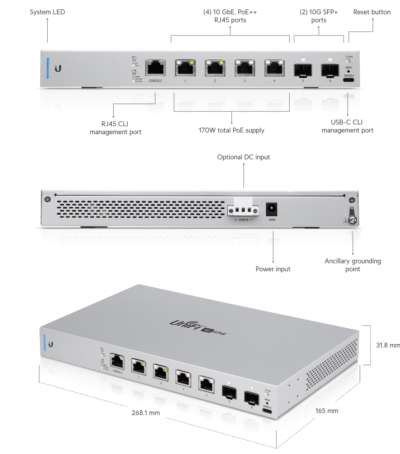
Technical Specifications
| Mechanical | |
|---|---|
| Dimensions | 165 x 268.1 x 31.8 mm (6.5 x 10.6 x 1.3") |
| Weight | 1.3 kg (2.9 lb) |
| Enclosure material | SGCC steel |
| Hardware | |
| Management interface | Ethernet In-Band (1) RJ45 Serial port Out-of-Band (1) USB Type C port Out-of-Band |
| Networking interface | (4) 1/2.5/5/10 GbE RJ45 ports (2) 1/10G SFP+ ports |
| PoE interface | (4) PoE++ (Pair A 1, 2+; 3, 6-) (Pair B 4, 5+; 7, 8-) |
| Power method | 54V DC, 3.88A power adapter (Included) DC input with terminal block |
| Power supply | External AC/DC adapter (Included) DC power source |
| Supported voltage range | 44–57V DC |
| Max. power consumption | 40W (Excluding PoE output.) |
| Total available PoE | 170W |
| Max. PoE wattage per port by PSE | PoE++: 60W |
| Voltage range PoE mode | PoE: 44–57V PoE+/PoE++: 50—57V |
| ESD/EMP protection | Air: ± 18kV, contact: ± 12kV |
| Operating temperature | -5 to 45° C (23 to 113° F) |
| Operating humidity | 5 to 95% noncondensing |
| Certifications | CE, FCC, IC |
| LEDs | |
| System | Status |
| Ethernet | PoE Link/Speed/Activity |
| SFP+ | Link/Activity |
Then the Honeymoon was over.
That’s right, four and a half years into owning three of these switches, the most terrible thing happened. The switch fan within the switch started to grind and howl like a banshee scratching its way out of a prison made of chalkboard and leaf blowers. Coincidentally, that image prompt is not work friendly from the AI art generator.
So opening this thing up, the laptop-style blower fan from Sunon had lost its lubrication and had a bearing failure. I decided that the solution from UniFi was lacking to begin with, and I decided to modify take liberties with thermal conveyances within my private home.
Somewhat to my surprise, the temperatures weren’t terrible per se at 54C to 78C; they seemed reasonable. However, even before the fan failure, these sounded like a gaming laptop spinning up. Personally, I prefer my packets medium rare, so this definitely needed addressing.
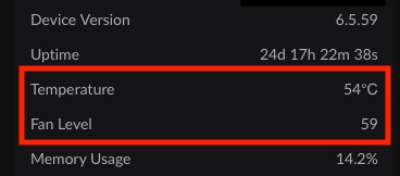
I grabbed some supplies;
- Noctua NF-A4x10 FLX, Premium Quiet Fan, 3-Pin (40x10mm, Brown)
- 40mm Black Fan Grill
I drilled some holes;
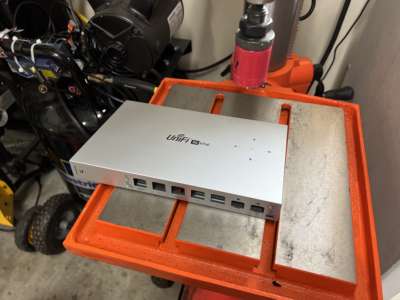
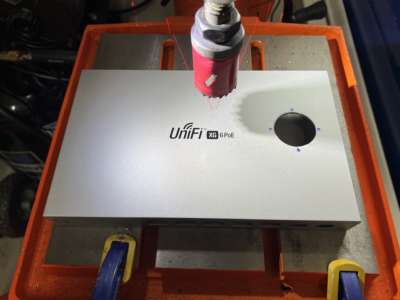
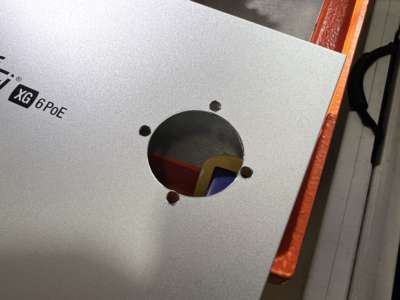
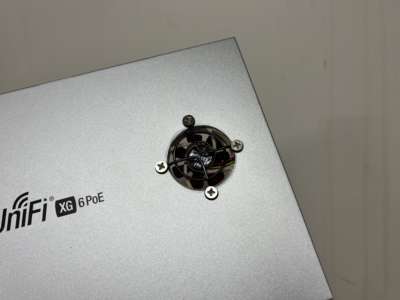
Adapted the fan power cable;
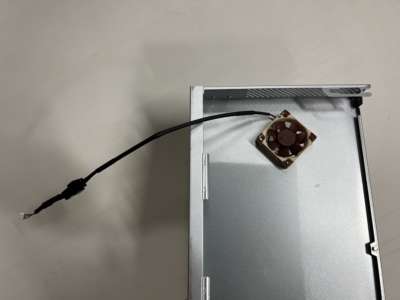
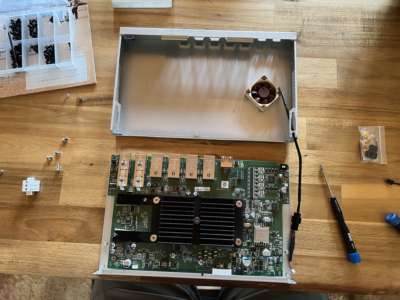
Put it all together;
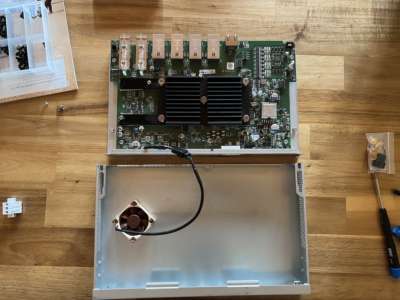
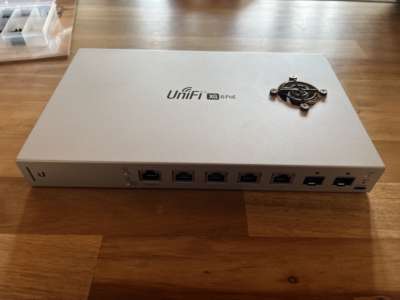
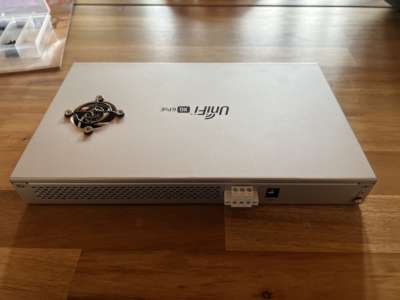
The Results
Looking at the temperatures afterwords showed an improvement with 36C-44C observed on the hottest summer day of recent history. Not bad. Most importantly though, the sound is now effectively below the background noise level. Included is an obligatory video recorded with a phone from 30 cm away.
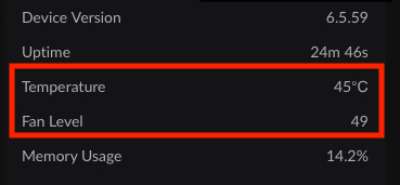
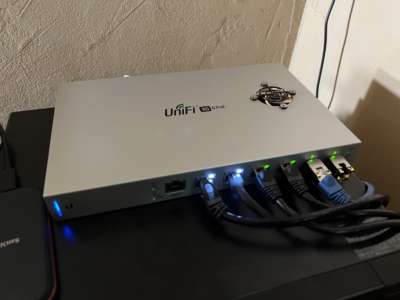
This is what switch stacking is right? 😂
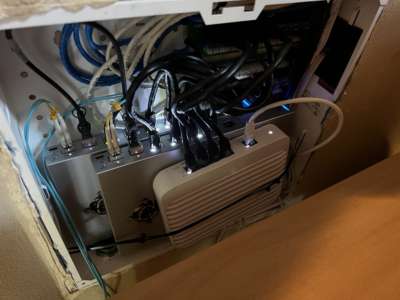
Hey, UniFi, can we have some switches designed for… wait for it. Not racks? But these silly residential structured wiring cabinets that I wish didn’t exist? Really, they should sell a cover for these standard boxes that allow for vertical half rack mounting. And yes, before I get emails, and postcards about it, I did fix the fiber radius bends. I created some 3d printed bend supports to tidy it up. The fan mods made this possible at all though. Crammed in this way the temps could get very high.